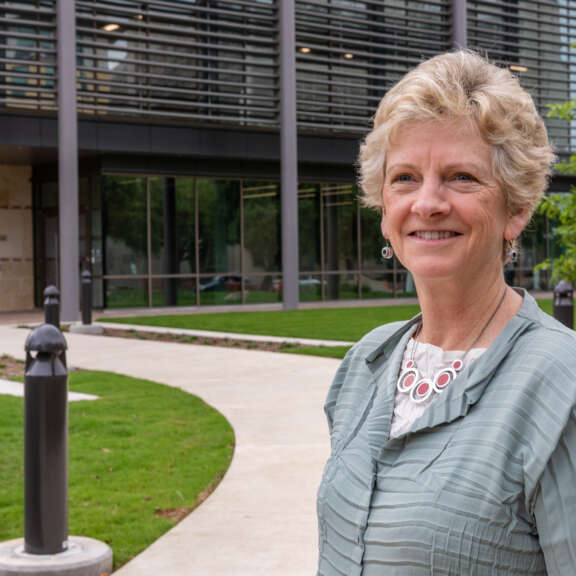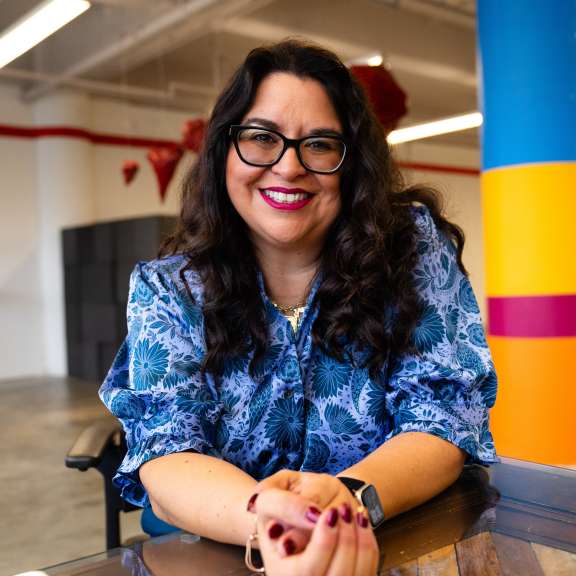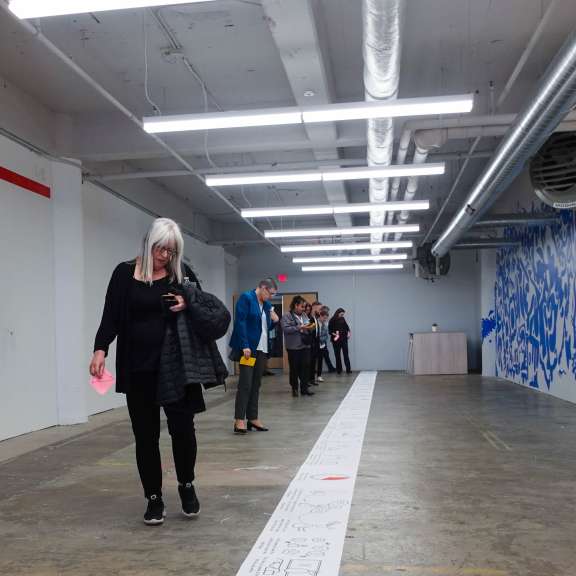“If We’re Laser-Focused, We Can Achieve Anything”
Paving the way for the City of Detroit and beyond, Joshua Edmonds shares what he’s learned about community, collaboration, and executing no matter what

Joshua Edmonds is Detroit’s first-ever director of digital inclusion – working to bring computers, high speed internet, and technology to over 100,000 residents who wouldn’t have access otherwise. After just 3 years in the role, his bold leadership has made an impact on both the local and national level.
We sat down with Joshua to learn how he got into public service, how he approaches his work as a leader and changemaker, and what he’s learned along the way.
Tell us about your journey in public service. What brought you to where you are today?
I got into public service because, honestly, I got tired of working in philanthropy. With philanthropy, I felt like I was on the sidelines. I wanted to be in the hot seat instead. And boy, does that seat get hot.
I’ve been Director of Digital Inclusion here in Detroit for almost 3 years now. Before coming to Detroit, I was at the Cleveland Foundation – working to build out Northeast Ohio’s digital equity programs through philanthropy and investing. Prior to that, I was working in public housing, connecting residents to the internet.
I like to think of my current role as a manifestation of work that I’ve been doing, on the ground and through philanthropy, for years now. I’ve seen what works and what doesn’t.
How has your experience influenced you as a leader?
My work on the ground in public housing had a huge influence on me – I can’t even begin to tell you how much I learned there. One story that sticks with me happened during a focus group. I’d put together some language around an internet offer to get feedback – “This offer is for low income residents. If you’re low income, sign up here.”
An older man in the group immediately spoke up, ”Hold on a second. I might not have all the money in the world, but I’m not low income. I might not be rich, but I’m not low income. I’m not poor – and don’t you address me as such.”
That was really eye-opening. It helped me begin to develop a greater understanding and compassion around these problems we’re working to solve. Quite frankly, that was a life lesson. And it’s made my approach to work here in Detroit that much better.
I think working in philanthropy also taught me the value of funding and partnerships in scaling impact. I created Connect 313 last year, which is an initiative that brings together different organizations in the community to bridge the digital divide. Our founding members include The City of Detroit, the Rocket Community Fund, Microsoft, and United Way of Southeast Michigan. It’s our own little ecosystem. The reason we brought these groups together is that they’re each close to the community or close to the issue. We’re intentionally carving out space for them to be able to make investments that are germane to their mission.
I don't believe that philanthropy is meant to subsidize the digital divide in perpetuity. But I do think that, as long as they're doing work in the community, why not bring these groups together to collaborate on the problem and have a greater impact?
What do you love most about your role?
Well, here’s one example that’s top of mind. I just got off of a call with several community members about a federal subsidy called the Emergency Broadband Benefit. It’s a $50 a month internet bill subsidy for folks who qualify – it’s a great benefit, but the sign-up process is pretty arduous. Rather than just complain about it, we’re trying to change it.
I’m coordinating a call with FCC leaders next week to voice our concerns. Before the call, our team is talking to residents on the ground to get their feedback and bring it to the FCC. I'm not talking to an FCC coordinator here either – these are people on the executive team who are working with the President, allowing us to have our concerns voiced, heard, and hopefully acted on in a real way.
That’s what I love most about this role. I can work on the local level to identify problems. I can rally our community around them. And then we can take their feedback and elevate it to give it the attention it deserves. I think that's empowering.
As a leader, how do you make sure the change you advocate for is sustainable?
The digital divide is so vast – sometimes it looks like our impact is only just a blip. I try not to get discouraged by that. Instead, I focus on finding sustainable solutions that will have a positive impact on the community year after year.
We try to tap into existing business practices wherever we can. We work with a local non-profit that takes used technology from corporations, refurbishes it, and helps redistribute it. At the heart of it, they’re providing a business service – they’re getting rid of electronic “waste” for companies. Businesses donate old laptops, old printers, old mice – it’s sustainable because it plugs into something businesses are doing already and do on a pretty frequent basis. PC refreshes and tech updates happen all the time – we know we’ll be able to count on that constant stream of donated tech to give back to Detroit residents.
You said it yourself – “The digital divide is vast.” So, how do you decide where to focus your efforts?
We use a methodology that’s backed by data. First off, we know from research that internet access, device access, tech support, and digital literacy are the four areas that we need to focus on to bridge the digital divide.
We take those four buckets and then look at specific data for the City of Detroit. How many households don't have internet access? How many households don't have wired high speed internet access? How many don’t have access to a device?
This allows us to say, “Hey, if 46% of Detroiters don't have a desktop or laptop, what can we do to change that?” It helps us prioritize, make a case for the work, and then attack each of those four buckets most effectively.
What about skepticism and naysayers?
I'm met with skepticism all the time and I welcome it. I expect it. If people aren’t pushing back on something, I’m like, “Are you all really paying attention?” I want skepticism in the mix because it’s honest and it's real. I respect when people are candid with me.
To overcome push-back, I try to stay laser-focused on the outcome. Execution no matter what. I can’t get caught up in what-about-isms, I can’t get caught up in scope creep, I have to be very clearly defined, because the nature of this work demands that.
When you look back at your work, what are you most proud of?
I'll go back to my public housing experience – this one is interesting because, at the time, I didn't recognize the value of what we were able to accomplish.
We did a housing hackathon and got everyone in the same room to work on the issue – public housing residents, developers, coders. What we got in that moment was instant user-validated projects that ended up being really impactful tech solutions. We built a housing locator tool with the help of the hackathon, which was highlighted by HUD and received a national award. That’s actually how I got my job in Cleveland – they saw the hackathon work and called me up, “We saw the work you did, would you like to do work like this all the time?”
More recently, I got called to testify in front of Congress on the need to support funding for digital equity. Some people thought I was too young, but thankfully, there were a few leaders who believed in me and believed in our work in Detroit.
Honestly, that was probably the most surreal moment in my career.
Wow, that does sound surreal. What wisdom did you share with Congress?
I spoke about the need to support digital equity, from a funding standpoint. Prior to 2021, the federal government was not investing a dime to support local communities [on digital equity] in a programmatic way. They had certain initiatives that they could point to, but that was it.
It almost gives me goosebumps to think about, because that was January 2020. Right before the pandemic. Everything that was said during that testimony then got used to structure the investment strategy for the pandemic and what local communities are receiving today. Fast forward one year – the city’s getting $45 million for digital equity.
How would you like to see Detroit and other cities evolve to better serve their communities?
We’re going to have to think a lot bigger and be a lot bolder. If we don’t, then someone in our community is going to lose out.
At the end of the day, I think about my family members, I think about my neighbors. If I wouldn’t want something to happen to a loved one of mine, I’m not going to let it happen to someone else. That’s just the way I operate. I’d love to see more people start to think that way too.
If you could leave folks with one piece of advice, what would it be?
Don’t be afraid to push boundaries. I still think I'm going to get fired every single day – and it hasn’t happened yet.
I think a lot of people in the public sector have been conditioned to lean on bureaucracy, I look at bureaucracy like I do high speed internet. The standard for good internet in this country is 25 megabits. I don’t want 25 megabits! I want a gigabit service for everybody. Bureaucracy exists as a recommendation, it doesn’t have to be where we stay.
No matter the infrastructure that we lack, no matter the investment that we don't currently have, if there's a goal, and we're laser-focused on it, we can achieve it.
- Photo: Shawn Lee Studios


